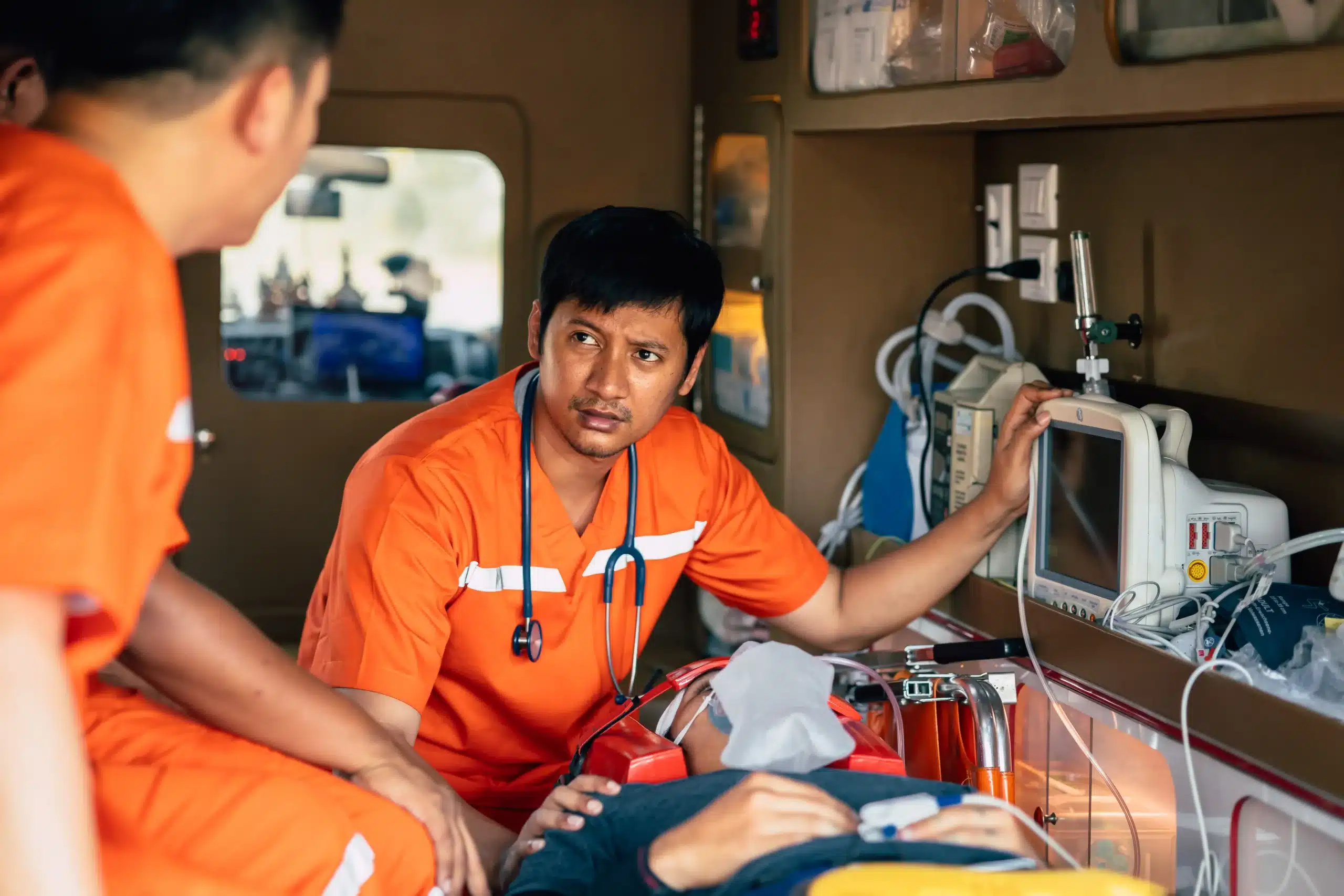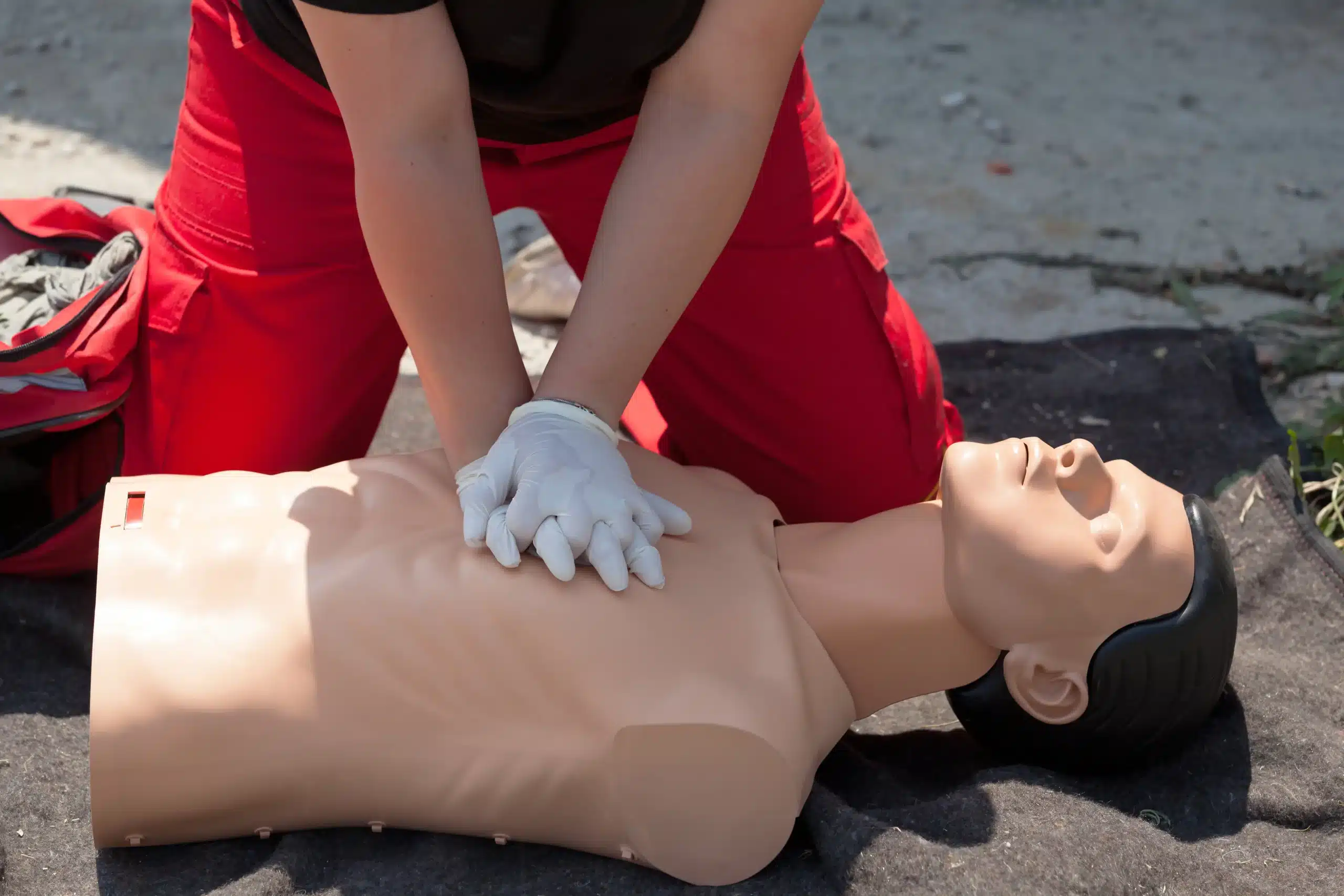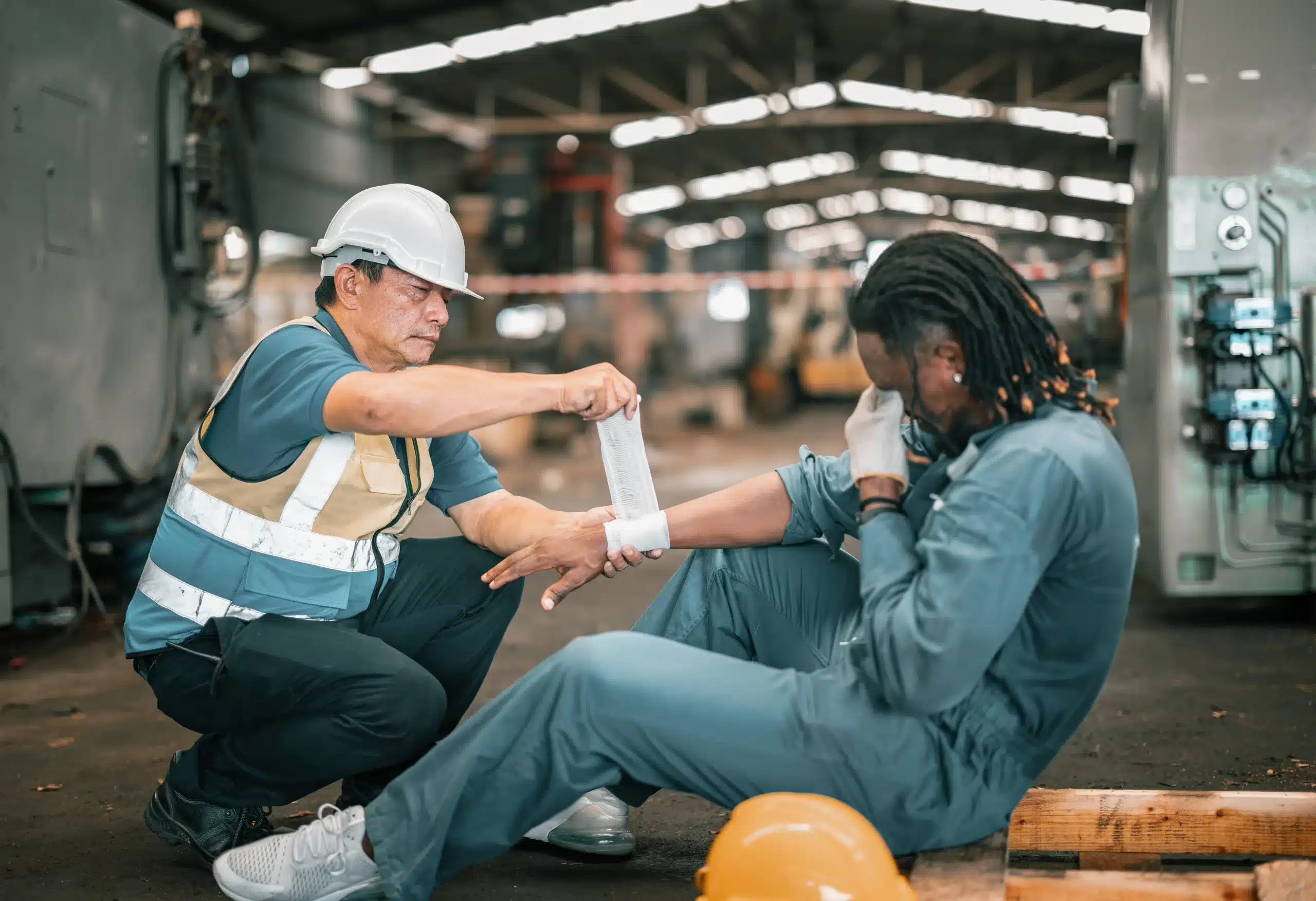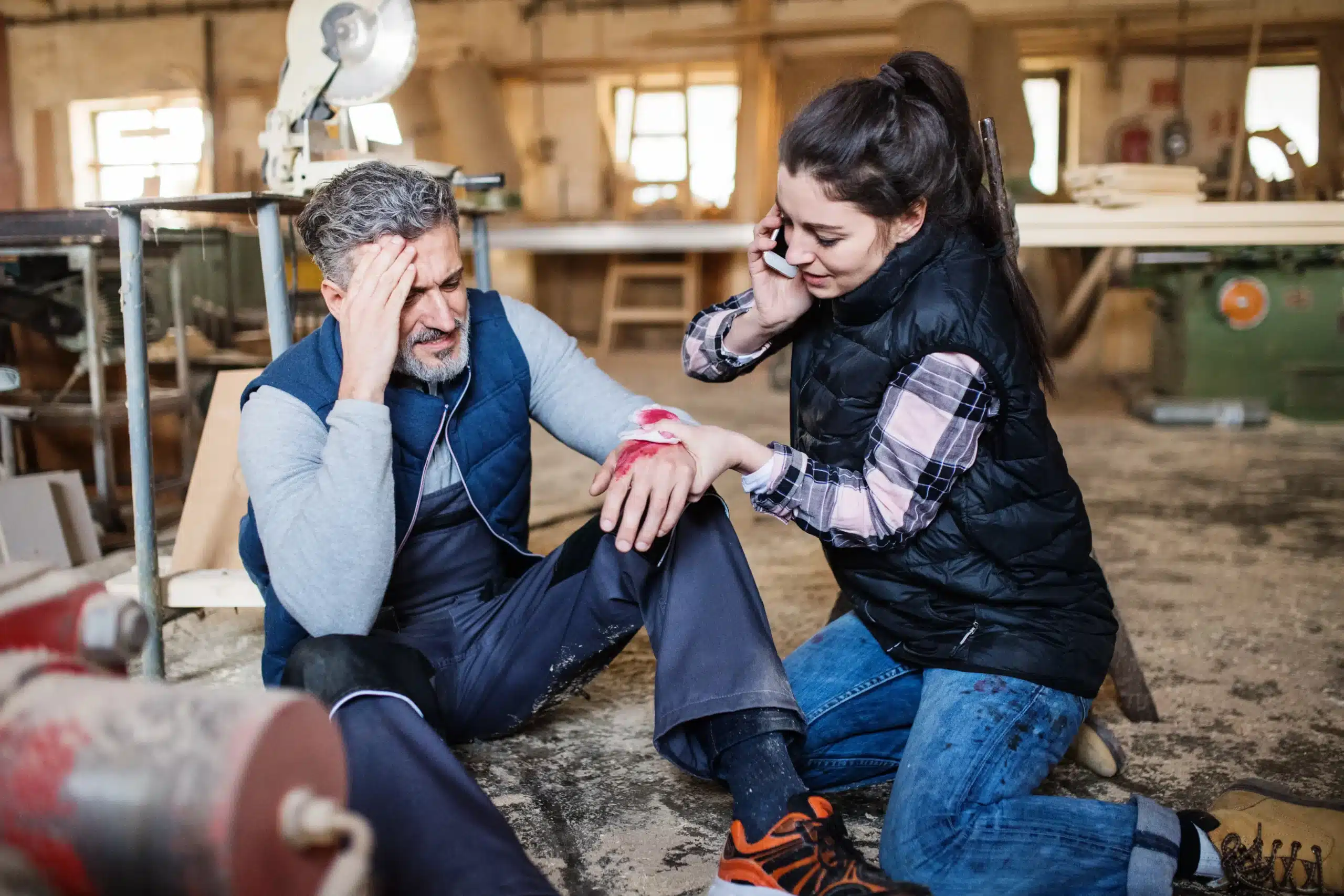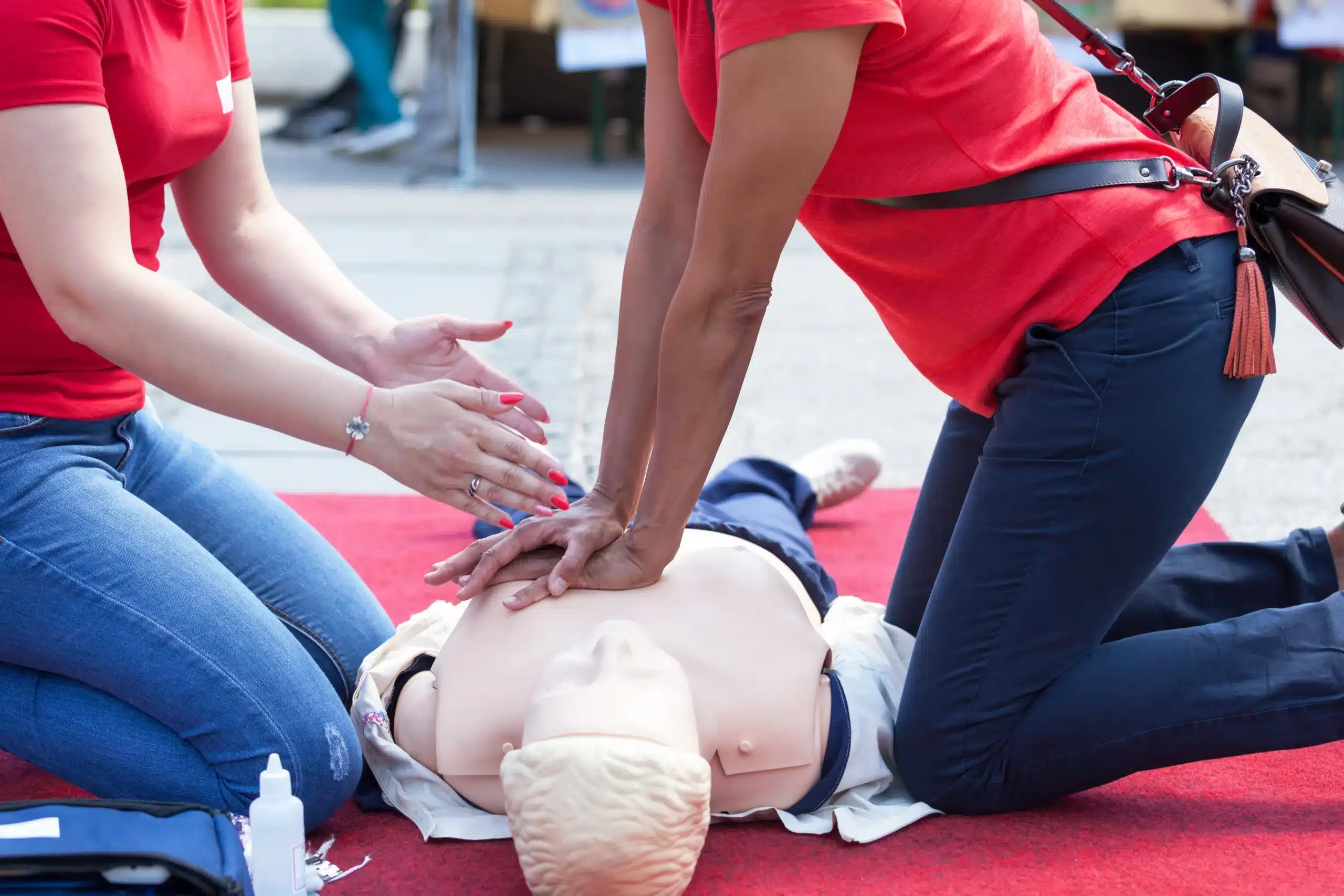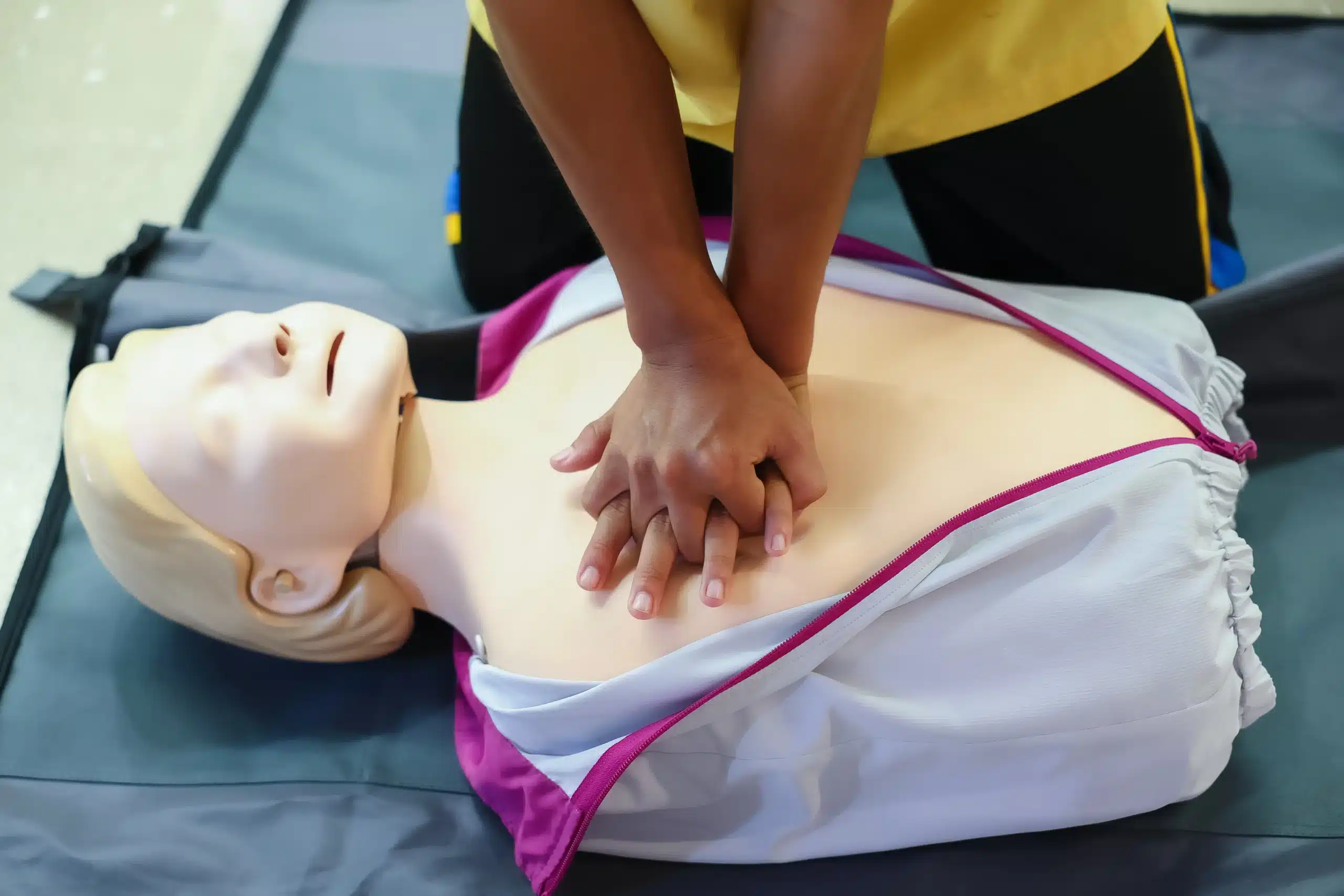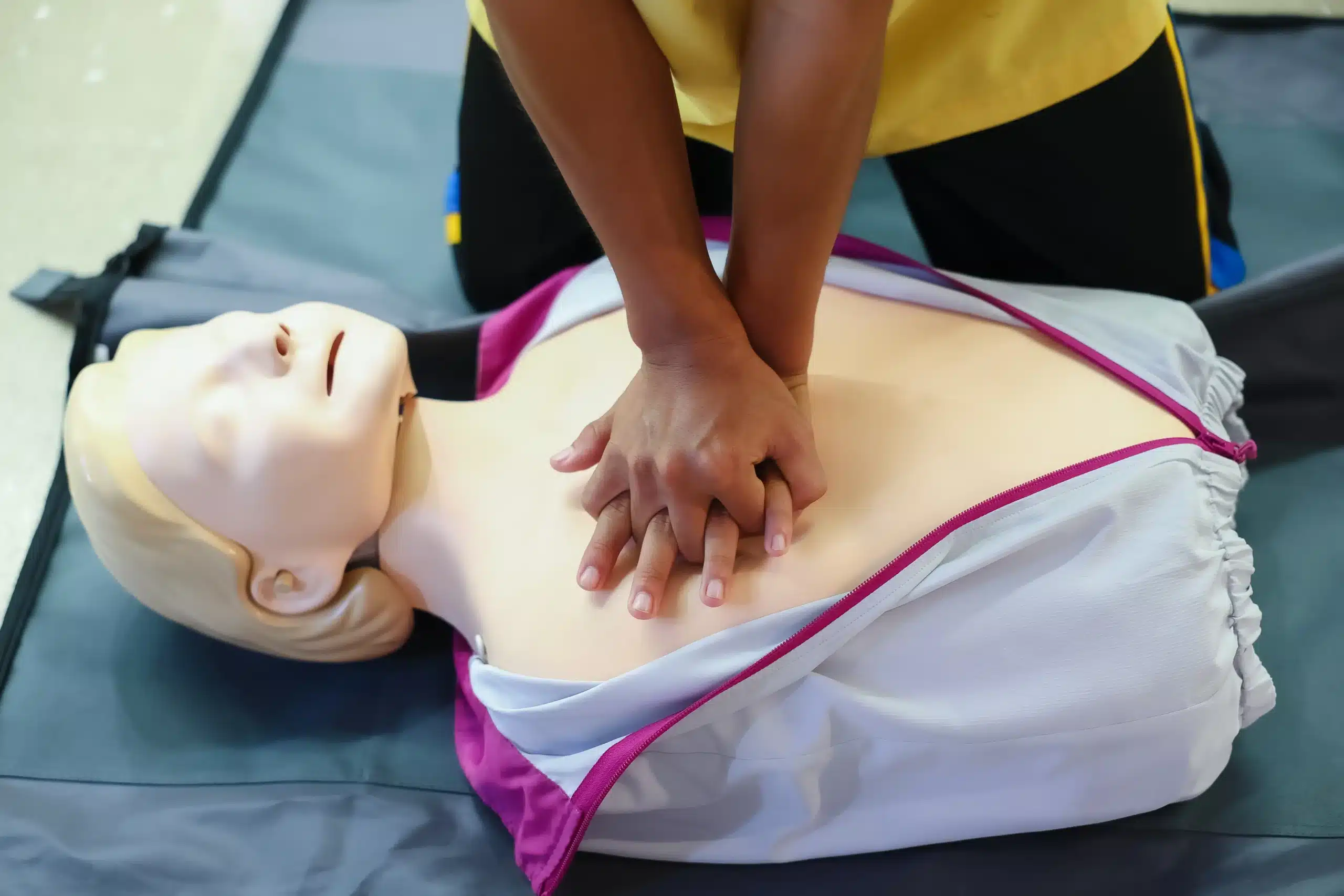Working in healthcare in Santa Clara means being ready for anything. Whether you’re a doctor, nurse, EMT, or other healthcare professional, you’re on the front lines of patient care. BLS for healthcare providers in Santa Clara is your foundation for responding to emergencies. It’s the training that empowers you to act quickly and confidently when a patient’s life is on the line. This article will explore the importance of BLS certification, the skills you’ll gain, and how to find the right training program in Santa Clara to meet your needs. We’ll also discuss how BLS certification goes beyond just CPR, encompassing a broader range of life-saving techniques.
Key Takeaways
- BLS certification is essential for healthcare providers: It equips you with life-saving skills like CPR, AED use, and airway management, increasing your confidence and improving patient outcomes. Find a course that suits your schedule and learning style, whether in-person, blended, or online.
- Choose a reputable BLS training provider: Look for AHA accreditation, a comprehensive curriculum, hands-on practice, and flexible scheduling. Compare prices and consider extras like same-day certification and online resources.
- Maintain your BLS skills: Your certification is valid for two years. Stay up-to-date with the latest AHA guidelines and pursue continuing education to keep your skills and knowledge sharp. Regular practice ensures you’re always prepared for emergencies.
What is BLS for Healthcare Providers in Santa Clara?
Basic Life Support (BLS) is the foundation of emergency medical care, the immediate response to life-threatening situations like cardiac arrest, respiratory distress, and airway obstruction. For healthcare providers in Santa Clara, BLS certification is more than just a credential—it’s a critical skill set, the first line of defense in protecting patients. BLS equips you with the knowledge and techniques to perform CPR, use an AED, and clear a blocked airway, potentially saving lives in those crucial first few minutes. This training builds confidence and empowers healthcare professionals to respond effectively under pressure.
BLS certification isn’t just for doctors and nurses. It’s essential for a wide range of healthcare professionals in Santa Clara, from paramedics and EMTs to physician assistants, respiratory therapists, and anyone who might be the first responder in a medical crisis. AHA BLS courses cover core life-saving techniques and emphasize teamwork and communication—vital components of effective emergency response, especially in fast-paced healthcare environments where coordinated efforts can significantly impact patient outcomes. If you’re a healthcare provider in Santa Clara, BLS certification is a non-negotiable part of your professional toolkit. It shows your commitment to patient safety and provides you with the skills to make a real difference. Find BLS courses in San Jose and get certified.
Why BLS Certification Matters in Healthcare
Basic Life Support (BLS) certification is absolutely crucial for healthcare providers. It gives you the skills and knowledge to respond effectively to life-threatening situations. The American Heart Association stresses how vital immediate, high-quality BLS is in the chain of survival, linking it to improved patient outcomes in their BLS training guidelines. This highlights the importance of BLS training for increasing the chances of survival for patients facing cardiac arrest or other medical emergencies. For healthcare providers in San Jose, Santa Clara, and Sunnyvale, getting your BLS certification is a significant step in providing the best possible care. You can find BLS courses in San Jose easily through providers like Safety Training Seminars.
Beyond technical skills like CPR and using an AED, BLS training builds confidence. Knowing you can handle these high-pressure situations makes a huge difference. Integrity Health Education points out the many advantages of BLS training, including increased preparedness, better life-saving skills, and improved teamwork and communication. These skills are essential for any healthcare professional. Consider exploring the American Heart Association’s RQI program for ongoing competency maintenance.
BLS certification also contributes to a culture of safety and responsiveness in healthcare settings. The CNA Training Institute emphasizes the importance of BLS knowledge and skills for healthcare workers responding to emergencies. It’s a shared responsibility among healthcare teams to ensure patient safety. BLS certification isn’t just a piece of paper; it’s a vital part of healthcare education and practice, leading to better patient outcomes and a more competent healthcare workforce. Safety Training Seminars offers a low price guarantee on their courses, making high-quality training accessible.
Top BLS Course Providers in Santa Clara
Finding the right BLS course provider is crucial for healthcare professionals. Here’s a rundown of some reputable options in Santa Clara:
Safety Training Seminars
Safety Training Seminars, a woman-owned AHA Training Center, offers various AHA courses, including BLS, ACLS, PALS, CPR, and First Aid. They prioritize excellent customer service and offer convenient scheduling throughout the week in Santa Clara and surrounding areas. Check their course schedule to find a class that fits your needs.
American Heart Association
The American Heart Association (AHA) sets the standard for CPR and ECC training. Taking an AHA BLS course ensures you receive high-quality instruction based on the latest scientific guidelines and best practices for healthcare providers.
American Red Cross
The American Red Cross is another well-known provider of BLS training. They offer a flexible approach with various learning formats, including in-person classes and blended learning that combines online coursework with in-person skills sessions.
HeartShare Training Services
HeartShare Training Services focuses on CPR and BLS training for healthcare professionals, tailoring their courses to meet the specific needs of various healthcare settings. Find more information and reviews on their Yelp page.
Santa Clara University
Santa Clara University partners with the Santa Clara Fire Department and the SCU EMT Squad to offer BLS certification. This program combines low-cost training with other relevant certifications like HIPAA and Implicit Bias training, making it a valuable resource for students pursuing healthcare careers.
Key Features and Benefits of BLS Courses
BLS certification courses offer several key features designed to prepare you for real-world emergencies. Here’s what you can expect from a quality BLS course:
AHA Accreditation and Certification
A reputable BLS course should offer American Heart Association (AHA) accreditation. This ensures the curriculum meets the latest evidence-based guidelines. Choosing an AHA-accredited program, like those offered by Safety Training Seminars, means your certification will be widely recognized and respected. This accreditation validates the quality and comprehensiveness of the training you receive.
Comprehensive Curriculum
BLS courses cover a range of essential lifesaving skills. You’ll learn how to perform high-quality CPR for adults, children, and infants, and how to relieve choking. The curriculum also includes training on the proper use of an automated external defibrillator (AED). AHA BLS classes equip you with the knowledge and skills needed to respond effectively in various emergency situations.
Hands-On Training
Effective BLS training goes beyond the textbook. Look for courses that emphasize hands-on practice. This allows you to develop muscle memory and confidence in performing CPR and other critical skills. Practical training sessions are crucial for mastering the techniques required to provide effective care during emergencies. This hands-on experience is invaluable in preparing you for real-life scenarios.
Same-Day Certification
Many BLS providers offer same-day certification upon successful completion of the course. This means you’ll receive your official AHA BLS Provider card immediately, allowing you to put your new skills to use right away. Getting your certification card the same day streamlines the process and ensures you’re ready to respond to emergencies. This convenience is especially beneficial for busy professionals.
Modern Training Methods
BLS training has evolved to incorporate modern learning techniques. Programs like the AHA’s Resuscitation Quality Improvement (RQI) program offer a blended learning approach, combining online modules with in-person skills sessions. This flexible format allows healthcare professionals to learn at their own pace and refresh their skills regularly. These modern methods enhance learning and retention, making it easier to stay up-to-date with the latest guidelines.
Compare BLS Course Formats and Scheduling Options
Choosing the right BLS course format depends on your learning style and schedule. Let’s break down the most common options: in-person, online, and hybrid courses. We’ll also look at how to find a course that fits your busy lifestyle.
In-Person Classes
In-person BLS classes offer hands-on learning and direct interaction with instructors. This format is ideal for those who thrive in a traditional classroom setting and value immediate feedback. You’ll practice skills like CPR and AED use on mannequins, and instructors can correct your technique in real-time. This face-to-face training ensures you leave the classroom confident and prepared. Safety Training Seminars, for example, offers in-person American Heart Association BLS courses in Santa Clara, with same-day certification.
Online Learning Options
Online BLS courses provide flexibility for those with demanding schedules or limited access to in-person training. This self-directed learning can be a great option for refreshing your knowledge or fitting certification into a busy work week. The American Heart Association’s RQI program is one example that allows healthcare professionals to complete the cognitive portion of BLS training online at their own pace. Keep in mind that online-only courses typically require a separate in-person skills session for hands-on practice and to receive your BLS certification card.
Hybrid Course Structures
Hybrid courses combine the best of both worlds: online learning and in-person skills practice. You can complete the coursework online at your convenience, then attend a shorter in-person session to demonstrate your skills and receive your certification. The American Red Cross offers a blended learning BLS program that follows this format. This approach offers flexibility while still ensuring you get the hands-on experience necessary for effective BLS.
Flexible Scheduling for Busy Professionals
Many training centers understand the challenges of balancing work and professional development. They offer various course schedules, including weekend and evening classes, to accommodate busy professionals. Safety Training Seminars publishes their BLS course calendar, showcasing the range of dates and times available. This makes it easier to find a course that fits your schedule. Look for providers who offer flexible scheduling options and consider factors like location and course duration when making your decision.
Find the Best BLS Course Deal: Pricing and Value
Getting your BLS certification is an investment in your career and the community. You want a course that offers both quality instruction and good value. Here’s how to evaluate BLS course pricing and get the most for your money:
Compare Costs Across Providers
BLS course fees in Santa Clara can vary. Check prices from several providers, including Safety Training Seminars, before you commit. Look beyond the sticker price and consider what’s included. Some providers might bundle study materials or offer free refresher courses, adding extra value. You can often find competitive options—some training centers offer CPR/AED/First Aid and BLS Healthcare Provider certifications at prices like $24.99 and $34.99, respectively. For a comprehensive list of courses and pricing, see resources like BLS Certification Santa Clara Ca 95054 CPR First Aid Courses Prices.
Low Price Guarantees and Group Discounts
Look for training centers with a low price guarantee. This assures you’re getting the best possible deal. If you’re training with colleagues, ask about group discounts. Many providers, including Santa Clara CPR Classes, offer reduced rates for group registrations, making team training more cost-effective. This can be a smart strategy for healthcare facilities or businesses looking to certify multiple employees. For more information on discounted CPR classes, check out resources like Discounted CPR Classes in Santa Clara County.
Additional Value-Added Services
Think about the extras that can make your training experience smoother and more valuable. Some providers offer same-day certification, which is incredibly convenient. Others include online resources or practice materials to help you prepare and retain information. Safety Training Seminars is known for its commitment to excellent customer service and comprehensive training. Features like receiving your certification card immediately after the class, as mentioned on CPR Classes in Santa Clara, can also influence your decision. By considering these factors, you can choose a BLS course that fits your budget and provides a great learning experience.
Prepare for Your BLS Certification Course
Getting ready for your BLS certification course can make a real difference in how well you absorb the information and build your confidence. This section covers the key things you should know before, during, and after your BLS training.
Prerequisites and Recommendations
The BLS Course from the American Heart Association is designed for healthcare professionals and other personnel who need to perform CPR and other basic cardiovascular life support skills. While there aren’t strict prerequisites, a basic understanding of medical terminology can be helpful. For more details, visit the AHA’s BLS Course page.
Pre-Course Materials and Study Tips
Many BLS providers offer pre-course materials. Take advantage of these resources! Reviewing them beforehand can give you a head start. If your provider doesn’t offer materials, consider brushing up on your CPR knowledge. Focus on key areas like chest compressions, rescue breaths, and using an AED. Even if you’re renewing your certification, a quick review can be beneficial. BLS Renewal classes offer a great way to refresh your skills and learn about any updates to the guidelines. Improving your skills can increase your preparedness and confidence in emergencies. BLS training offers numerous benefits, including compliance with regulatory requirements and enhanced communication and teamwork.
What to Expect During Training
BLS training is hands-on and interactive. Expect to participate actively in demonstrations and practice scenarios. You’ll learn the core skills of BLS, including CPR, AED use, and airway management. The course covers a range of situations, from single-rescuer to team-based responses. Come prepared to learn, ask questions, and practice your skills in a supportive environment. BLS training is a vital part of healthcare education, empowering professionals to confidently perform life-saving procedures like CPR, AED use, and airway management. You’ll leave your training feeling prepared and confident in your ability to respond to emergencies.
Apply BLS Training in Healthcare
BLS training isn’t just a certification; it’s a vital skill set for healthcare providers facing critical situations. Let’s explore how these skills apply in real-world healthcare settings.
Cardiopulmonary Resuscitation (CPR)
CPR is a cornerstone of BLS. Healthcare professionals frequently encounter situations requiring immediate CPR. Effective CPR helps maintain vital organ function until advanced medical help arrives. This foundational skill, enabling effective responses to cardiac arrest and other emergencies, is essential for all healthcare providers. The CNA Training Institute underscores how BLS knowledge, particularly CPR, allows healthcare workers to respond appropriately and potentially save lives. Our BLS courses in San Jose cover these essential CPR techniques.
Use of Automated External Defibrillators (AEDs)
BLS training also covers proper AED use. These devices can restore normal heart rhythms during sudden cardiac arrest. Healthcare providers trained in BLS gain the confidence and competence to use AEDs effectively, significantly improving survival chances. Medicus Training discusses how BLS empowers healthcare professionals to perform life-saving procedures like AED use with skill and confidence.
Airway Management
Airway management is another critical BLS component. Obstructed airways can quickly cause respiratory distress and cardiac arrest. BLS equips healthcare providers with skills to open and maintain a patient’s airway, ensuring adequate oxygenation. This training covers various techniques for managing airways in different emergencies, from basic to advanced methods. A comprehensive BLS certification provides the essential training for responding effectively to life-threatening emergencies, including airway management during respiratory distress.
Team Communication in Emergencies
Effective teamwork is crucial during medical emergencies. BLS training emphasizes clear communication and coordination among healthcare providers. This includes using standardized terminology, understanding team roles, and practicing simulated scenarios. Integrity Health Education highlights how BLS training improves communication and teamwork, creating a more coordinated and effective response during crises. This training is invaluable for building cohesive teams that work seamlessly under pressure.
Maintain Your BLS Certification
Keeping your BLS skills sharp is crucial for any healthcare provider. This section covers how to maintain your certification and stay up-to-date with the latest guidelines.
Certification Validity and Renewal Requirements
Your BLS Provider Course Completion Card is valid for two years after you meet all course requirements. This two-year timeframe highlights the importance of staying current with your training to provide effective care. The American Heart Association offers detailed information on BLS certification. Plan and schedule your renewal course before your current certification expires.
Continuing Education Opportunities
Even if your certification isn’t up for renewal yet, ongoing education is key. Consider BLS renewal courses to refresh your knowledge and learn about advancements in emergency care. These courses offer valuable opportunities to practice realistic emergency scenarios, building confidence in your skills.
Stay Updated with AHA Guidelines
The American Heart Association regularly updates its guidelines for BLS. Staying informed about these changes is essential for providing the most effective care. High-quality BLS training is crucial for delivering effective emergency care, whether you prefer online learning or traditional classroom instruction. This commitment to ongoing learning ensures you’re equipped to handle any situation.
Choose the Right BLS Provider in Santa Clara
Finding the right BLS certification provider in Santa Clara is crucial for healthcare professionals. It’s not just about getting certified—it’s about receiving top-notch training that prepares you for real-world emergencies. Here’s what to consider:
Accreditation and Reputation: Look for providers accredited by the American Heart Association (AHA). AHA Training Centers, like Safety Training Seminars, adhere to the latest AHA guidelines and standards, ensuring high-quality instruction. Safety Training Seminars is a woman-owned local business committed to excellent customer service and comprehensive training. They offer various courses, including BLS, ACLS, and PALS, in Santa Clara.
Course Schedules and Formats: Your schedule is busy, so choose a provider with flexible options. Look for weekend classes, evening sessions, and accelerated courses. Many Santa Clara providers offer BLS certification courses seven days a week, making it easier to fit training into your life. Consider whether in-person instruction or an online/blended learning format suits you best. Safety Training Seminars offers courses in nearby Willow Glen, San Jose.
Comprehensive Curriculum and Resources: A good BLS course covers everything from CPR and AED use to airway management and team dynamics. Check if the provider offers additional resources like practice tests or study materials. These can reinforce your skills and help maintain your certification. Safety Training Seminars offers the AHA’s RQI program, a modern approach to BLS training. They also offer EMSA Health, Safety, and Lead Poisoning training for California childcare providers.
Customer Support and Value: Don’t underestimate good customer service. Choose a responsive provider with clear course information. Consider factors like cost, location, and perks like a low-price guarantee. Safety Training Seminars offers a low-price guarantee, ensuring you receive quality training at a competitive price. By carefully weighing these factors, you can find a Santa Clara BLS provider that equips you with the skills and confidence to handle any emergency.
Related Articles
- BLS Certification San Jose | AHA BLS Classes & Training
- CPR Certification San Jose: Your Complete Guide – San Jose CPR Classes
- ACLS Courses in Sunnyvale: Your Complete Guide – San Jose CPR Classes
- CPR Training Center in San Jose | BLS, ACLS, PALS Classes
- Why CPR is Important in Healthcare – San Jose CPR Classes
Frequently Asked Questions
Why is BLS certification important for healthcare providers?
It equips healthcare professionals with the essential skills to respond effectively to life-threatening emergencies. These skills, including CPR, AED use, and airway management, are crucial for improving patient outcomes and increasing survival rates. BLS certification demonstrates a commitment to patient safety and high-quality care. It also fosters a culture of preparedness and teamwork in healthcare settings.
What does a BLS course typically cover?
A BLS course covers core life-saving techniques, including high-quality CPR for adults, children, and infants, how to use an AED, and techniques for relieving choking and managing airways. It also emphasizes teamwork, communication, and the importance of a coordinated response in emergency situations. The curriculum is based on the latest scientific guidelines from the American Heart Association.
How do I choose the right BLS course provider in Santa Clara?
Look for several key factors: accreditation by the American Heart Association, flexible course schedules and formats that fit your needs, a comprehensive curriculum that covers all essential BLS skills, additional resources and support, and excellent customer service. Compare pricing and consider any value-added services offered by different providers.
What are the different BLS course formats available?
BLS courses are offered in various formats to accommodate different learning styles and schedules. In-person classes provide hands-on training and direct interaction with instructors. Online courses offer flexibility and self-paced learning. Hybrid courses combine online learning with in-person skills sessions. Choose the format that best suits your learning preferences and availability.
How can I maintain my BLS certification after completing the course?
BLS certification is typically valid for two years. To maintain your certification, you’ll need to complete a renewal course before it expires. Stay updated with the latest American Heart Association guidelines and consider continuing education opportunities to keep your skills sharp and your knowledge current. Regular practice and review are essential for maintaining proficiency in BLS techniques.


